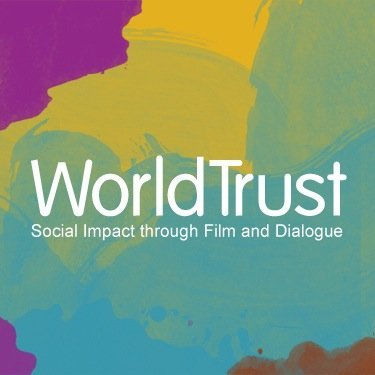Organization Highlight: World Trust
- Ilsa Govan & Tilman Smith

- Dec 15, 2021
- 3 min read
Updated: Oct 11, 2023

It gives both Ilsa Govan and Tilman Smith a great deal of joy to uplift the work of World Trust and be in partnership with Shakti Butler. Shakti’s pedagogy of deep inquiry and reflection inspired us throughout the six years of writing, What’s Up with White Women? To have Shakti agree to write the forward to our book is a true honor. We are all better off because of her work, her vision, and her generosity, and we encourage everyone to watch ALL her movies and share how your understanding of yourself and racial justice deepens as a result.
Ilsa’s Personal Connection with World Trust
Sitting in a dark, crowded college classroom, watching an old television, I listened as women talked with one another about their experiences with racism. They were in like-race groups. At the time, the idea of racial caucuses was new to me, but it immediately made sense. I watched these women share and relate not only to one another’s experiences, but also in culturally similar ways of engaging one another. As a white woman, one thing that stood out to me was how joyful the different women of color groups were as they connected with one another’s experiences and how somber the white women were as they discussed their collusion with racism. The movie we watched was called The Way Home, and it was my first introduction to World Trust and movies produced by Shakti Butler.
Since that time, Butler’s movies have been a touchstone in my understanding of racism and my own white privilege. As I watched Mirrors of Privilege: Making Whiteness Visible in a racial justice training hosted by the Beyond Diversity Resource Center, it brought up a painful memory of a time I had treated a Black student horribly in my classroom. I wept as I talked with a small group of friends, voicing the shame I had hidden from. Speaking this out loud was my first step in moving out of the shame.
One of the Black women in that group asked me what I was going to do to make reparations. I hadn’t even thought about doing something—previously too stuck in my own feelings. I decided to write a letter apologizing, owning my actions, and letting him know my commitment to change. This apology was not to ask forgiveness, it was to live my life with integrity. Every time I saw the people from that group, they asked me, “Did you send the letter, yet?” until, eventually, my answer was, “Yes.”
These are just two transformational moments I experienced because of engaging with the work of World Trust.
Tilman’s Personal Connection with World Trust
The first time I met Shakti Butler was at the Des Moines airport where I was arranging to drive to the small town of Pella, Iowa for the 5th annual White Privilege Conference. As my friends and I were looking for our shuttle vans, someone recognized Shakti and suddenly there was an air of excitement and awe, and some scrambling to be in the van with her to the conference. While I wasn’t lucky enough to travel with her that day, I did have the opportunity to attend a film screening of her new film, Light in the Shadows, and participate in a dialogue about “Transformative Learning: White Women and Women of Color” with Shakti during the conference.
To say that I was hugely inspired by this relatively short film is an understatement. In just forty-five minutes Shakti brilliantly captured a genuine dialogue among a multiracial group of women trying to unpack the racism that had occurred during the filming of The Way Home. I couldn’t believe how much there was to observe, investigate, critique (especially the white women!) and try to emulate. I was also a little bit panicked. I felt panicked because while I critiqued the white women in the film (hard!), I also realized I wasn’t prepared to have an authentic conversation like that with almost anyone, and especially not with women of color.
I must have watched my copy of that film at least twenty times that next year alone – looking for clues for how to respond and how to be in true dialogue about racial justice. I like to imagine that each time I had a little better understanding of what genuine racial justice practice looked and sounded like. Since then, I have also tried to go to as many events as possible featuring Shakti Butler, and each time have benefited deeply from her wisdom, intellect, and expansive revolutionary love.
I know that Shakti, Light in the Shadows, and all the subsequent work of World Trust were in my heart as I sat with Ilsa and MG to create the model that was the basis of our book.



